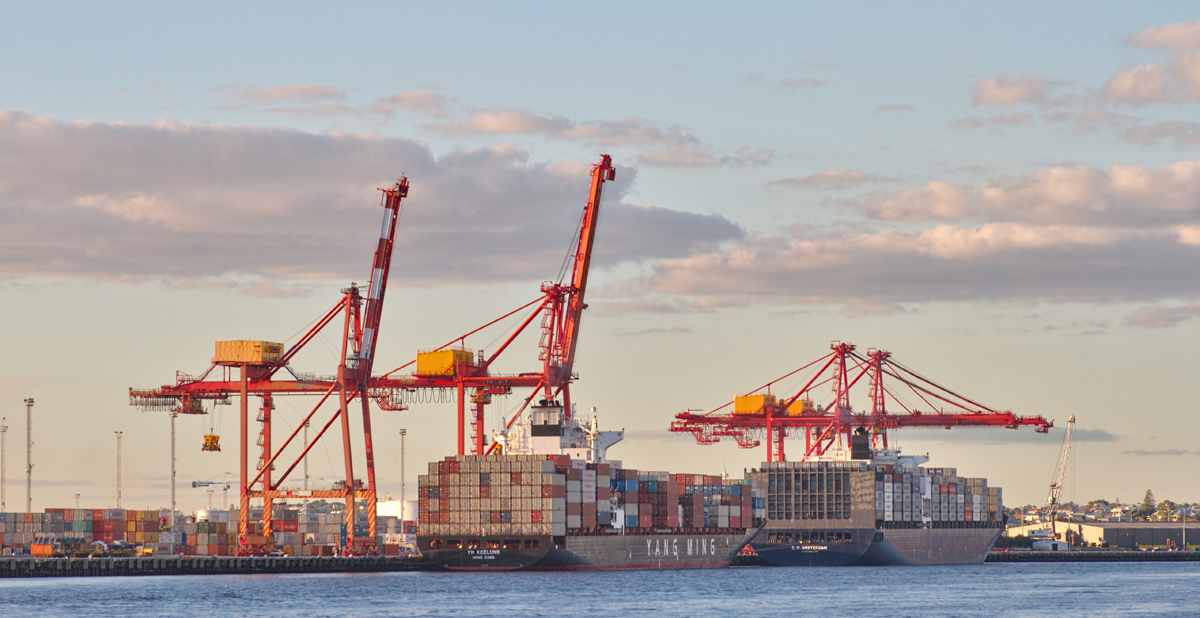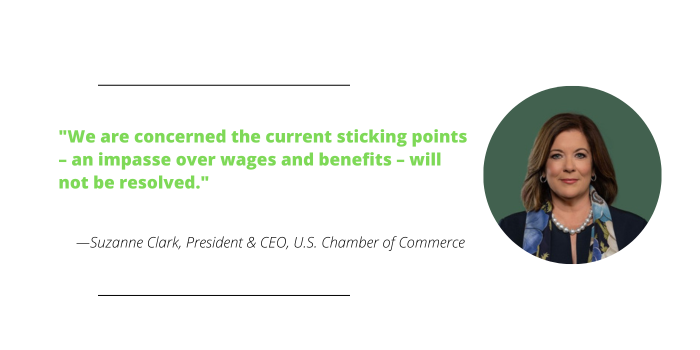Chamber Of Commerce Calls On White House To Mediate Port Negotiations

Update: As of Thursday, the PMA and ILWU have reportedly reached a tentative agreement on a six-year contract. Acting Labor Secretary Julie Su, mentioned below, is said to have played a crucial role in brokering a deal agreed upon by both sides.
“We are pleased to have reached an agreement that recognizes the heroic efforts and personal sacrifices of the ILWU workforce in keeping our ports operating,” PMA President James McKenna and ILWU President Willie Adams said in a joint statement. “We are also pleased to turn our full attention back to the operation of the West Coast Ports.”
After 13 months of negotiations between Pacific Maritime Association (PMA) and the International Longshore and Warehouse Union (ILWU), signs of a potential boiling point have begun to emerge.
PPAI broke down labor disruptions in key ports in California and Washington earlier this month, which could already greatly affect importing for many U.S. industries, including promo.
Now, with negotiations reportedly stalling over wages, there is a growing hope that the White House will get involved in order to avoid disaster.
The Port Situation
Negotiations between the dockworkers’ union and their employers have been going on since May of 2022, with some 22,000 workers at 29 West Coast ports technically working without a contract for over 11 months.
- Progress had reportedly been made in negotiations concerning topics such as the involvement of automation.
Unfortunately, according to sources with the Wall Street Journal, the two sides have seemed to reach an impasse over perhaps the most crucial topic: wages.
- Dockworkers are reportedly aiming to double their wages over the life of the six-year contract.
- The union cites billions of dollars in profits for the ocean carriers during the pandemic, earned behind the labor of the dockworkers.
- The PMI is purportedly resisting these demands, citing the fickle nature of profits in the shipping industry.
Since early this month, ports in California and Washington have faced labor actions that have hindered the efficient delivery of imports coming through the West Coast. Dockworkers have slowed work or not shown up for key positions in port terminals, although the ILWU has not officially taken credit for these slowdowns as a deliberate work stoppage.
The Port of Oakland completely shut down temporarily in early June and terminals in Long Beach remained closed for multiple days.
The ports that have been affected include:
- Port of Los Angeles
- Port of Long Beach
- Port of Hueneme
- Port of Oakland
- Port of Seattle
- Port of Tacoma
The current disruptions have created what are being referred to as “slow and go” conditions at the West Coast ports, with $5.2 billion of cargo having been stuck in truck and container bottlenecks last week.
Chamber of Commerce Calls On White House To Mediate
As the disruptions continue and raise fears of a larger and more longstanding works stoppage, the U.S. Chamber of Commerce has sent a letter to President Biden requesting that the White House appoint an “independent mediator” to help both sides negotiate a suitable contract.
- The letter claims that a serious work stoppage at the ports of Los Angeles and Long Beach could cost the U.S. economy up to half a billion dollars a day, with that number doubling if extended to the rest of the West Coast.
- It also states that the Chamber of Commerce is “very concerned” by the work disruptions that have come out of stalled negotiations between the PMA and ILWU.
“The best outcome is an agreement reached voluntarily by the negotiating parties,” writes Suzanne P. Clark, president and CEO of the U.S. Chamber of Commerce. “But we are concerned the current sticking points – an impasse over wages and benefits – will not be resolved.”
The appointment of an independent mediator would likely come before any larger involvement or intervention by the White House, something the administration is likely hoping to avoid.
According to the Wall Street Journal, acting Labor Secretary Julie Su suggested on a recent call with employers that ocean carriers should share their profits with workers.

Promo Perspective
The Chamber of Commerce isn’t the only large organization that has penned a letter to the White House concerning the labor negotiations taking place at the West Coast ports.
In March, PPAI joined with the National Retail Federation and 236 state, local and national trade associations in a letter to President Biden encouraging the administration to provide both the ILWU and the PMA any and all support to end the negotiations and reach an agreement quickly to ensure no disruptions in port operations and cargo traffic.
The work disruptions that have already taken place will have varying ripple effects on shipping out of the West Coast. If work stoppages continue or intensify further into the summer, the effects on the promo supply chain could be immeasurable.

